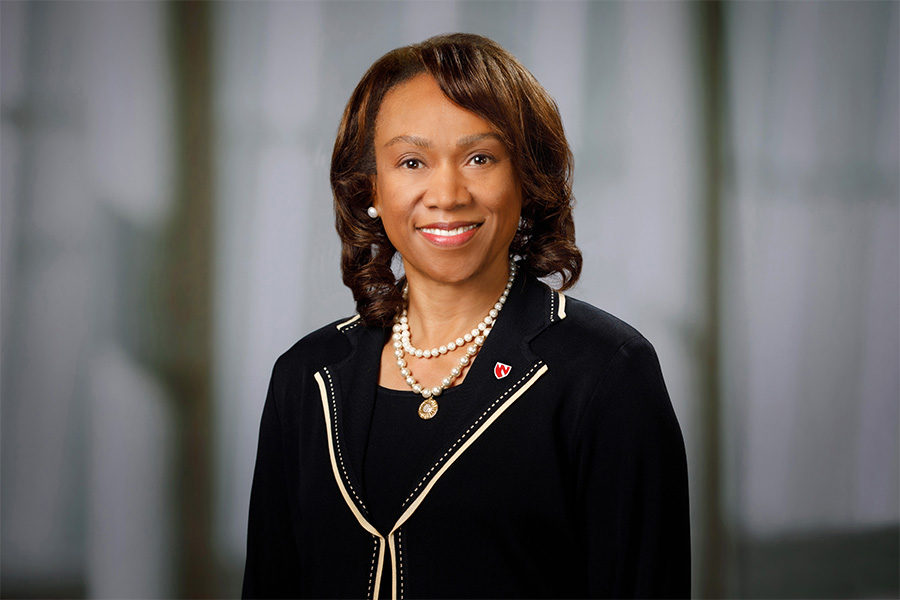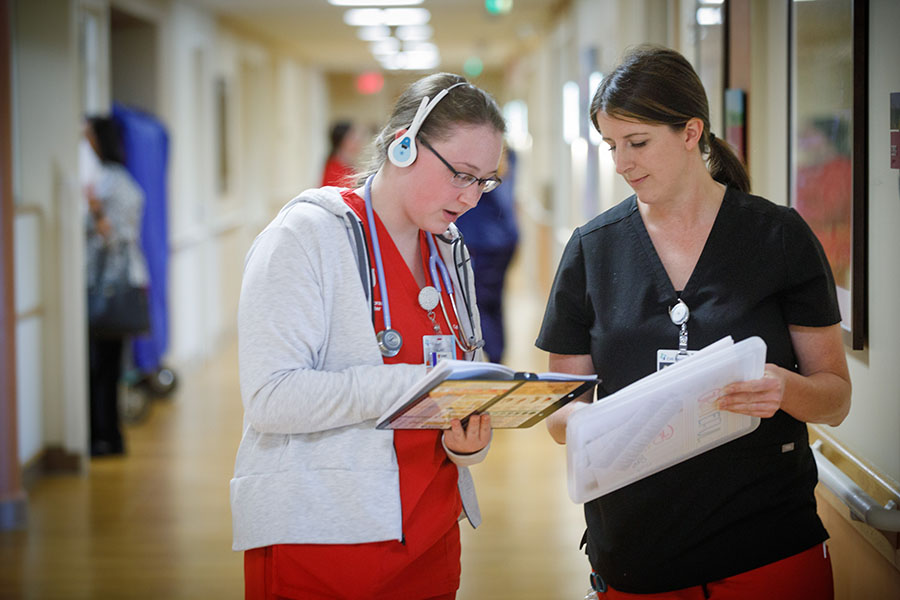About Us
Meet the Dean

Dr. Sharp-McHenry received an associate’s degree in nursing at Southern Arkansas University, bachelor’s in nursing from the University of Arkansas, master’s as a clinical nurse specialist in psychiatric mental health nursing from the University of Oklahoma and a doctorate in nursing practice with a specialty in executive leadership from Union University in Tennessee.
She has held leadership roles in national organizations such as the National Association of Directors of Nursing Administration in Long Term Care, National Council of State Boards of Nursing, American Association of Colleges of Nursing, Commission on Graduates of Foreign Nursing Schools and Commission on Collegiate Nursing Education.
She published and co-authored articles and served as an expert panel member in the development of clinical practice guidelines in the long-term care field.
College of Nursing History
In 2003, Dr. Virginia Tilden became the dean of the College of Nursing. Under her leadership a fifth campus in Norfolk was added and the Center for Nursing Science was built adjacent to the Omaha College of Nursing building. Faculty developed a cutting-edge concept-based undergraduate curriculum this is especially well-suited to the new environment that is emerging with healthcare reform. The Doctor of Nursing Practice program opened in Summer, 2011.
Dr. Juliann G., Sebastian became the College of Nursing's seventh dean in 2011. In 2012, the governor and the Nebraska state legislature appropriated funds for a new Health Sciences Education Building that now houses the Kearney Division and a new building for the Lincoln Division. As college momentum expanded in research education and practice, the College of Nursing focused on integrating these missions to create, test, and teach innovative models for excellent nursing and health care.
UNMC and the College of Nursing have made addressing gaps in rural healthcare a priority. CON offers the rural pathways program, to help address nursing shortages in rural Nebraska, as well as the Nebraska Neighbors scholarships, which offers in-state tuition to students of states neighboring Nebraska. CON announced twice-a-year admissions at its Kearney division in 2023 and as part of the initiative to improve rural health in Nebraska, UNK and UNMC announced Phase II of the joint UNK-UNMC Rural Health Education Building, which will allow the colleges to expand health science programs on the UNK campus.
In July 2023, the UNMC College of Nursing welcomed Lepaine Sharp-McHenry, DNP, as its eighth dean. When Dr. Sharp-McHenry arrived on campus, she laid out a number of immediate goals across all five nursing campuses, including a new building project in Kearney, expanding research enterprise, implementing a competency-based education curriculum and increasing to twice-a-year admission at its Lincoln division in 2024 in order to attract additional nursing students.

The baccalaureate degree program in nursing, master's degree program in nursing, Doctor of Nursing Practice program and post-graduate APRN certificate program at the University of Nebraska Medical Center is accredited by the Commission on Collegiate Nursing Education (http://www.ccneaccreditation.org).

UNMC 2024-2027 Strategic Plan
Each fall, we gather as part of an active and dynamic planning process to assess our strengths and weaknesses, as well as external opportunities and threats that could affect our units and their work to support UNMC's mission and goals.